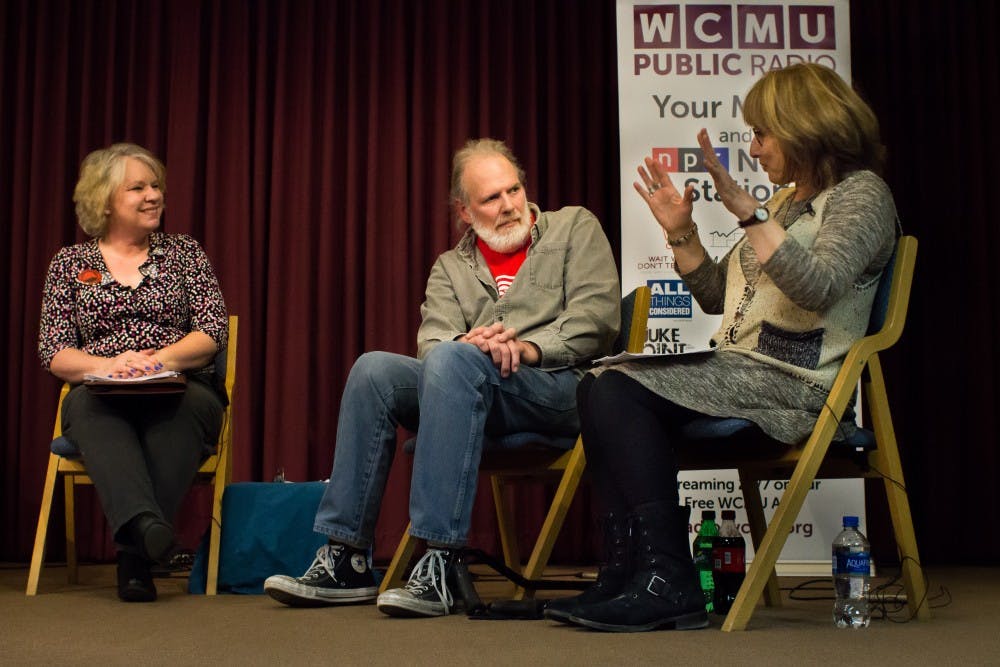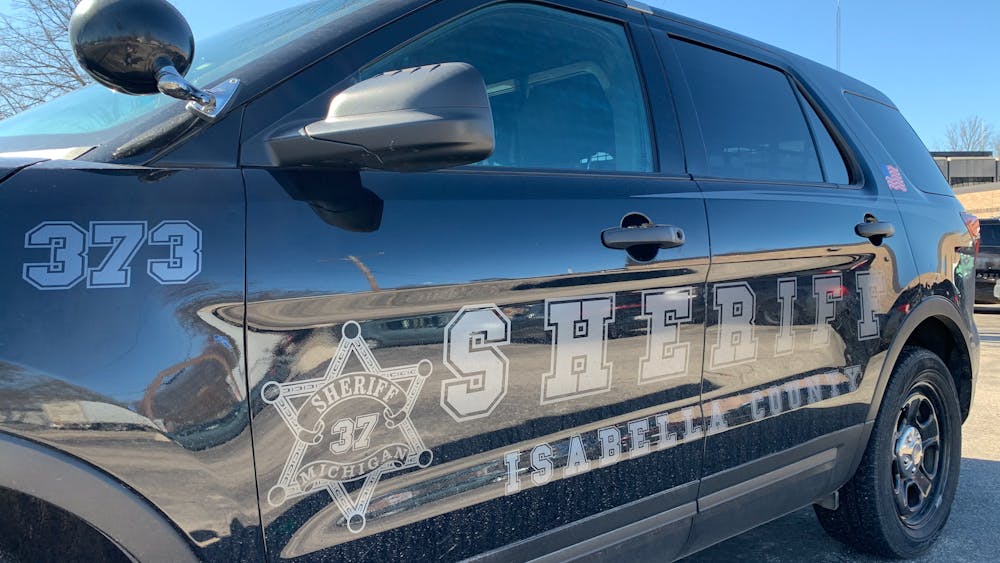CMU alumni talk about their experiences protesting the Vietnam War

A panel of Central Michigan University alumni shared the experience of protesting the Vietnam War in the 1960s and 70s.
The event, "Student Activism: Then and Now" was hosted by WCMU Public Media and live streamed on WCMU.org. The panel included eight CMU alumni, all of whom were student activists during the Vietnam War era.
Speakers included — Ron Williams, Mary Irvine, Rick Kedzierski, Jon Eric Childs, Matt Mertz, Cathy Courtney, Dennis Adams and Janice Fialka.
While the event attracted an older generation, the crowd did consist of current CMU students as well.
The most prevalent topic of discussion between speakers was the takeover of CMU’s Reserve Officers' Training Corps (ROTC) building in 1970, which was done in response to the U.S. invasion into Cambodia and the Kent State Shooting, when student protesters were shot at Kent State by the national guard.
The takeover of the ROTC lasted about a week long and occurred at the height of the Vietnam War protests at CMU. Most of the panelists took part in that event, including Williams. He recalled a few stories from the takeover, such as when a swat team was sent to take students out of the building.
“Many of them were angry with us, and they felt what we were doing was unpatriotic,” Williams said. “They were looking to smash some heads.”
President of CMU at the time William Boyd made sure no harm was done to students, Williams said. Despite Boyd being a veteran, Williams said Boyd knew the protesters were non-violent, so he let the protest continue.
Panelists noted how music plays a role in protests and activism. Irvine said she learned about activism through pop culture, specifically music, during junior high. Courtney also shared a story of how music led to her being arrested during the 1967 Detroit riot.
“I was arrested just for singing on the sidewalk, just because President Johnson declared martial law,” she recalled.
Sharing their favorite protest songs, Irvine said her favorite is Joan Baez’s “Saigon Bride”, while Williams said his favorite was “Imagine” by John Lennon.
The way panelists protested at CMU was done in a variety of ways. Williams was a disc jockey and shared a story about the time he was told to play an advertisement for the ROTC on-air, and refused to do so. He was suspended for this.
Adams noted a unique experience he had in his time at CMU — he was also a father. He said how being a father limited what he could do as an activist, specifically keeping himself out of harm’s way for the sake of his daughter. He said when he felt there was a large likelihood of violence happening, such as the Kent State Shooting, or the 1968 Democratic Convention, he stayed away, while still being very involved at CMU.
While the speakers and audience members felt current student activism is strong, students overall need more encouragement to fight for what they believe in.
“There’s a lot of political activism right now, especially in this political climate," said Saginaw senior Rachel Norman, who considers herself an activist on campus. “There can be more for sure, and we’re definitely not as intense as the speakers.”



